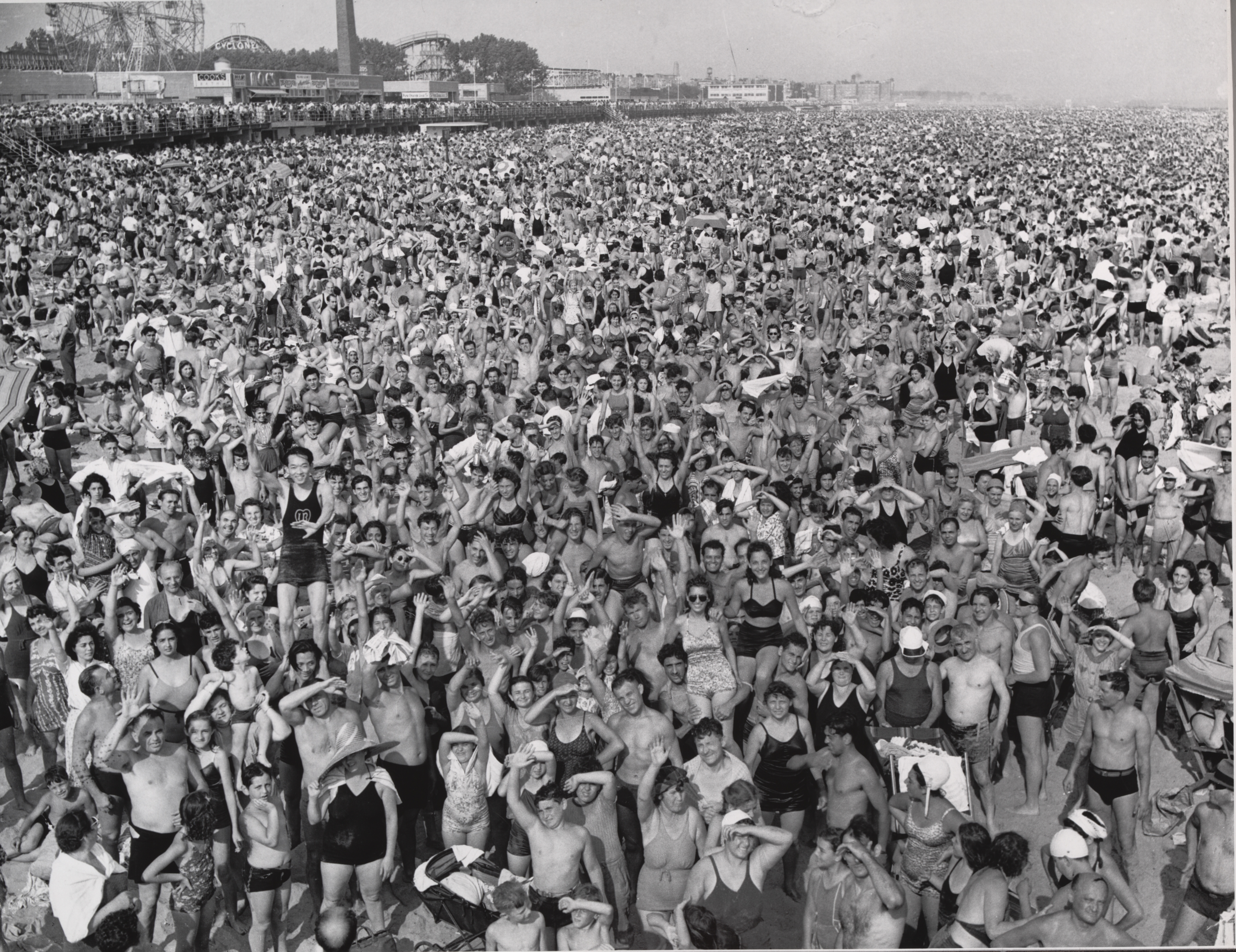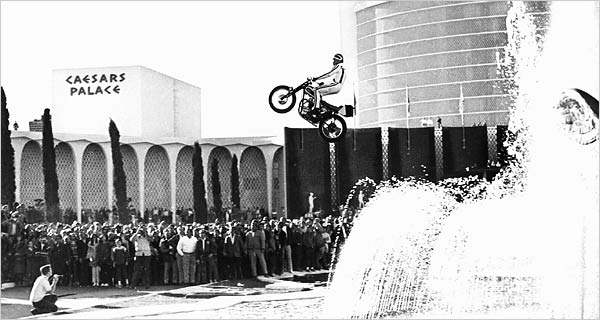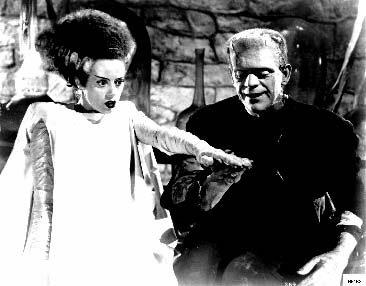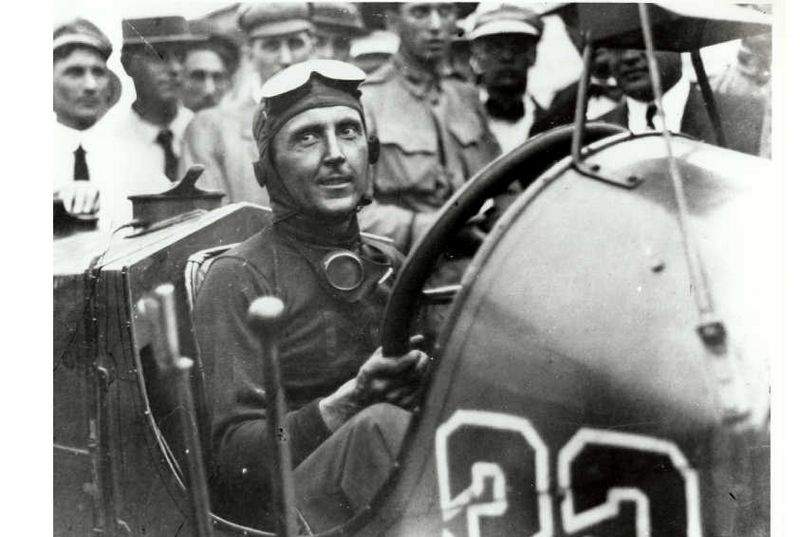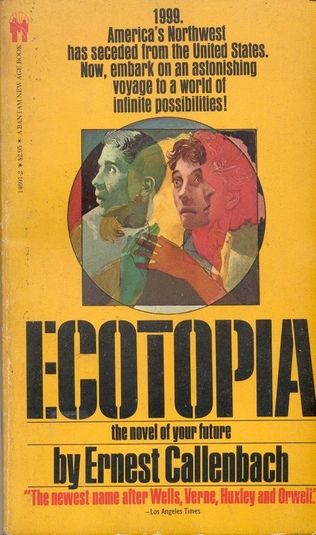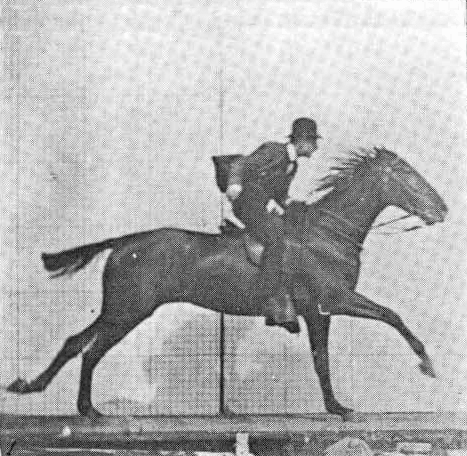Zooey Deschanel can only have her darling discussions about tomato soup with Siri today because of pioneering work in computer voice recognition that was done decades ago. Amazing video from Stanford University, 1968.
You are currently browsing the archive for the Videos category.
I read in one of the books about Saturday Night Live that a rival show on ABC had been called Saturday Night Live when Lorne Michael’s creation debuted. It was a short-lived comedy-variety program hosted by Howard Cosell and featuring guests like Evel Knievel and Muhammad Ali and a cast member named Bill Murray. It aired live from the Ed Sullivan Theater. The Saturday Night Live on NBC that we all know was originally called Saturday Night to avoid conflict over the title. This is a promo that ran for the Cosell show.
Tags: Howard Cosell
Best known today for having kinky sex with Keira Knightley, Carl Jung was successor to Sigmund Freud as the most famous psychoanalyst on the planet. From 1959, two years before the doctor’s death.
Tags: Carl Jung
In a chilling scene from 1949’s The Third Man, Harry Lime makes abstractions of human beings, reducing them to dots. How can people not be expendable when time and history and population are considered? It’s enough to make the blood run cold, and it’s the kind of thinking that has been employed to commit atrocities.
But a similar type of thinking can be used to do great good. If you want to judge people objectively, if you want to remove prejudice, if you want to make decisions based on facts and not emotions, if your aim is to seek truth and not be prone to the delusions of narrative, it might not be bad to selectively see people as dots. Not to reduce the humanity of others but to diminish our own faulty decision-making processes.
Charles Fishman, author of The Big Thirst, nominates Las Vegas as the most water savvy area of the United States. It seems counterintuitive that a piece of desert crammed with swimming pools and gargantuan fountains could be considered water smart, but the city consistently makes it work despite meagre natural resources. An excerpt from his book at Marketplace:
“There is no two-mile stretch of ground anywhere in the United States that has such a density of water features, water attractions, and sheer water exuberance. Las Vegas, which can invest something as routine as breakfast with outlandish extravagance, has taken our most unassuming substance and unleashed it as the embodiment of glamour, mystery, power, and allure. In the way that only Las Vegas can, it has created a whole new category–ostentatious water.
The Las Vegas Strip is a demonstration of water imagination, of water mastery, and also of absolute water confidence.
It’s all the more remarkable because Las Vegas is the driest city in the United States. Of the 280 cities in the United States with at least 100,000 people, Las Vegas is No. 280 in precipitation and No. 280 in number of days each year that it rains. Las Vegas gets 4.49 inches of precipitation a year. And it rains or snows, on average, just nineteen days a year.
A metropolis with 2 million residents and 36 million visitors a year, Las Vegas gets ninety percent of its water from a single source, Lake Mead, the spectacular, man-made reservoir created on the Colorado River by Hoover Dam. When Lake Mead is full, it holds a sixty-year supply of water for Las Vegas.
But Las Vegas is legally allowed to take only a tiny sliver of Lake Mead water — 300,000 acre-feet a year, 98 billion gallons. All the water Las Vegas is allowed lowers the lake between two and three feet. Las Vegas’s allocation is about 4 percent of what everybody else gets to take from Lake Mead — 96 percent of the water people use from Lake Mead goes to either California or Arizona. And Las Vegas’s allocation is fixed in law, just as the allocations of California and Arizona are fixed — so the amount of water Las Vegas has access to hasn’t changed even as Las Vegas’s population has doubled, and doubled again, even as the city has added 100,000 new hotel rooms, along with fountains and waterfalls, swimming pools and shark tanks.”
••••••••••
Evel Knievel’s failed attempt at jumping the fountains at Caesars Palace, 1967:
Tags: Charles Fishman, Evel Knievel
Tags: Gary Numan
In 1961, newly crowned Indianapolis 500 champ A.J. Foyt appeared on I’ve Got a Secret with Ray Harroun, who won the inaugural Indy 500 in 1911.
Tags: A.J. Foyt, Ray Harroun
Michelangelo Antonioni, in 1982, thinking about a “future with no end,” knowing that film–and everything else–would soon change greatly. The rise of the machines and the fall of communism altered the landscape, as movies became more non-verbal for a truly global, multilingual market.
Tags: Michelangelo Antonioni
Mark Bittman at the New York Times mentions Ernest Callenbach’s 1975 futuristic novel, Ecotopia, in his most recent column. Callenbach, who also founded Film Quarterly, recently passed away. The book fantasizes that Northern California, Washington and Oregon secede to create a green paradise in which fossil fuels are banned. I’ve always meant to read it but never have. I must correct this. From a TomDispatch post about the late writer:
“Callenbach once called that book ‘my bet with the future,’ and in publishing terms it would prove a pure winner. To date it has sold nearly a million copies and been translated into many languages. On second look, it proved to be a book not only ahead of its time but (sadly) of ours as well. For me, it was a unique rereading experience, in part because every page of that original edition came off in my hands as I turned it. How appropriate to finish Ecotopia with a loose-leaf pile of paper in a New York City where paper can now be recycled and so returned to the elements.
Callenbach would have appreciated that. After all, his novel, about how Washington, Oregon, and Northern California seceded from the union in 1979 in the midst of a terrible economic crisis, creating an environmentally sound, stable-state, eco-sustainable country, hasn’t stumbled at all. It’s we who have stumbled. His vision of a land that banned the internal combustion engine and the car culture that went with it, turned in oil for solar power (and other inventive forms of alternative energy), recycled everything, grew its food locally and cleanly, and in the process created clean skies, rivers, and forests (as well as a host of new relationships, political, social, and sexual) remains amazingly lively, and somehow almost imaginable — an approximation, that is, of the country we don’t have but should or even could have.
Callenbach’s imagination was prodigious. Back in 1975, he conjured up something like C-SPAN and something like the cell phone, among many ingenious inventions on the page. Ecotopia remains a thoroughly winning book and a remarkable feat of the imagination, even if, in the present American context, the author also dreamed of certain things that do now seem painfully utopian, like a society with relative income equality.”
••••••••••
Callenbach discussing Ecotopia in 1982:
Tags: Ernest Callenbach, Mark Bittman
I love everything about McDonald’s except for the food–the awful, awful food. Oh, and the smell coming from the food. That also blows.
But from the kitchen systems to the bright-colored plastic furniture to the branding and packaging, I’m really taken by it all. If only the food didn’t taste like feet with ketchup.
In a recent (and very good) New York Times Magazine article by Keith O’Brien about the chain’s contemporary, Gladwellian marketing strategy, it was noted that West Coast outlets have begun adding flat-screen TVs that play a nascent McDonald’s Channel. No, you won’t see war coverage or towers being struck by airplanes. It’s innocuous stuff aimed at keeping diners in the restaurants longer, in the hope that extended stays will mean additional purchases. Here’s the promotional video for the channel.
Tags: Keith O'Brien
It started, for the most part, during the 1980s. Americans of modest means were encouraged to relate to the wealthy and powerful, ignoring their own circumstances. Don’t vote for people who have your interests at heart because your interests will soon change. You are a hardworking person and in America, a meritocracy, people like that will join the elite. Vote for the future you think you will have, not the present your are enduring. Union members needn’t support candidates who are pro-union. Seniors can support those who would decimate social security. Do not tax the rich because you’ll soon be rich.
Of course, the math doesn’t add up. No matter how much of a meritocracy we are, not every person who works hard will become incredibly successful. A good deal of luck goes into these things as well. And voting so often for our fantasies instead of our realities has only made things more difficult for the great majority.
It was no surprise that former Lifestyles of the Rich & Famous host Robin Leach recently called President Obama a “socialist.” But Leach tripped himself up on one point while doing so. He said that he came to America in the 1960s hoping to become wildly successful and wants those opportunities for others, not mentioning how much tax policy and the corporate role in government has changed since then. As far as race and gender, the 1960s was a less fair time, but we weren’t then a country that based monetary policy on what was best for the super-rich. If anyone proposed that we return to the policies of the 1960s, Leach would call them socialists as well.•
Tags: Robin Leach
Apart from Kentucky Derby day, horse racing has long suffered a diminished place in the sports and gambling worlds, so the Hong Kong Jockey Club decided to make itself over with high-tech, touchscreen gaming tables. From David Zax at MIT: “Horseracing almost feels like a throwback; it evokes images of old men angrily stubbing out cigars. But the new gaming tables–incorporating RFID, secure e-commerce and banking, multi-touch, digital video, and web technologies–are anything but a throwback. Up to eight gamers can play at a time. The tables debuted at the sleek and stylish ‘Adrenaline Bar’ at Happy Valley, Hong Kong’s most famous racecourse.”
Tags: David Zax
In 1972, hoaxer Alan Abel bandaged his head and pretended to be the reclusive millionaire Howard Hughes at a press conference he arranged at the St. Regis Hotel in New York. “Hughes” announced that he was going to freeze himself cryogenically and be thawed out when the stock market reached record highs. He was then rushed in a wheelchair to a waiting limo. A few days later during another press conference, Abel revealed the truth.
In the first clip (a French-language one) you can see footage from the initial press conference. The second video (in English) covers the bandage removal.
Tags: Alan Abel, Howard Hughes
I’ve always wondered if marathoners have lifespans different from the average. Do they live longer or shorter because of the extreme workout their hearts consistently get? It would seem, according to some new research, that at least those who jog moderately receive great benefit from the exercise. Though you have to assume people jogging regularly might be living healthier in other ways, too, so perhaps there’s some correlation to go along with the causation. From Counsel and Heal:
“Jogging can add more than five years to people’s lives, according to a recent Danish research.
According to Peter Schnohr, chief cardiologist of the Copenhagen City Heart Study, between one and two-and-a-half hours of jogging per week could add around 6.2 years to men and 5.6 years to women.
‘The results of our research allow us to definitively answer the question of whether jogging is good for your health,’ said Schnohr in a statement.
‘We can say with certainty that regular jogging increases longevity,’ Schnohr added.
Back in 1970s, few men died while running, raising speculations whether jogging had more harm than benefits. Some said jogging might be “too strenuous for ordinary middle aged people.’
However, the new study from Copenhagen City Heart suggests that jogging in fact is improving longevity, and it doesn’t have to be strenuous to receive the benefits. Just one hour per week could do the trick.”
••••••••••
Enhanced running in a leisure suit:
The beginning of retinal implants being used in earnest. Will blindness, in our lifetimes, become fully curable?
I put up a post about B.F. Skinner’s daughter staunchly denying that she was raised as some sort of guinea pig in a behaviorist box. Here’s the psychologist himself refuting such claims.
The free market can be corrupted, but all-out socialism would be a horrible remedy to that. Almost as bad would be not repairing our increasingly rigged form of capitalism. The opening of Robert Reich’s blog post, “The Answer Isn’t Socialism,” written in the wake of France moving leftward:
“Francois Hollande’s victory doesn’t and shouldn’t mean a movement toward socialism in Europe or elsewhere. Socialism isn’t the answer to the basic problem haunting all rich nations.
The answer is to reform capitalism. The world’s productivity revolution is outpacing the political will of rich societies to fairly distribute its benefits. The result is widening inequality coupled with slow growth and stubbornly high unemployment.
In the United States, almost all the gains from productivity growth have been going to the top 1 percent, and the percent of the working-age population with jobs is now lower than it’s been in more than thirty years (before the vast majority of women moved into paid work).” (Thanks Browser.)
••••••••••
“Oh Karl the world isn’t fair / It isn’t and never will be / They tried out your plan / It brought misery instead / If you’d seen how they worked it / you’d be glad you were dead.” (Thanks LRR.)
Tags: Francois Hollande, Karl Marx, Randy Newman, Robert Reich
In the wake of Christopher Hitchens’ death, I put up a post about his prose broadside against Mother Teresa. Here is the 1994 film analog.
Ford, which gave America the perfected assembly line, now has robots playing a crucial role in the building and inspection of its vehicles. If you look closely, you can see people in the background. It’s so quiet. (Thanks Singularity Hub.)
Environment influences mindset, no doubt, and someone’s perception of the world may vary depending of where they live or grew up. But the idea that cities make people more unfeeling, that the crowd relieves us of our capacity for goodness, seems a popular but unwarranted stereotype. But that’s the premise of “City and the Self,” by Stanley Milgram and Harry From, 1972.
Tags: Harry From, Stanley Milgram
Glenn Gould on giving up live performances, 1969.
Tags: Glenn Gould
A couple of minutes from “First There Was,” by the great Johnny Dowd.
Tags: Johnny Dowd
Life speeds in one direction, and how can anything ever be different? Then events occur. Similar traumas in the past haven’t caused a break, but this one takes hold. The brain rewires itself. All is different now. You can never return.
British racer Stirling Moss in the crash that retired him, 1962.
Tags: Stirling Moss
Digital information cannot be scratched or damaged, but it has a “shelf-life” all the same. And as new formats push out the old, what traces will remain? The Record-Vacuum, 1979:


